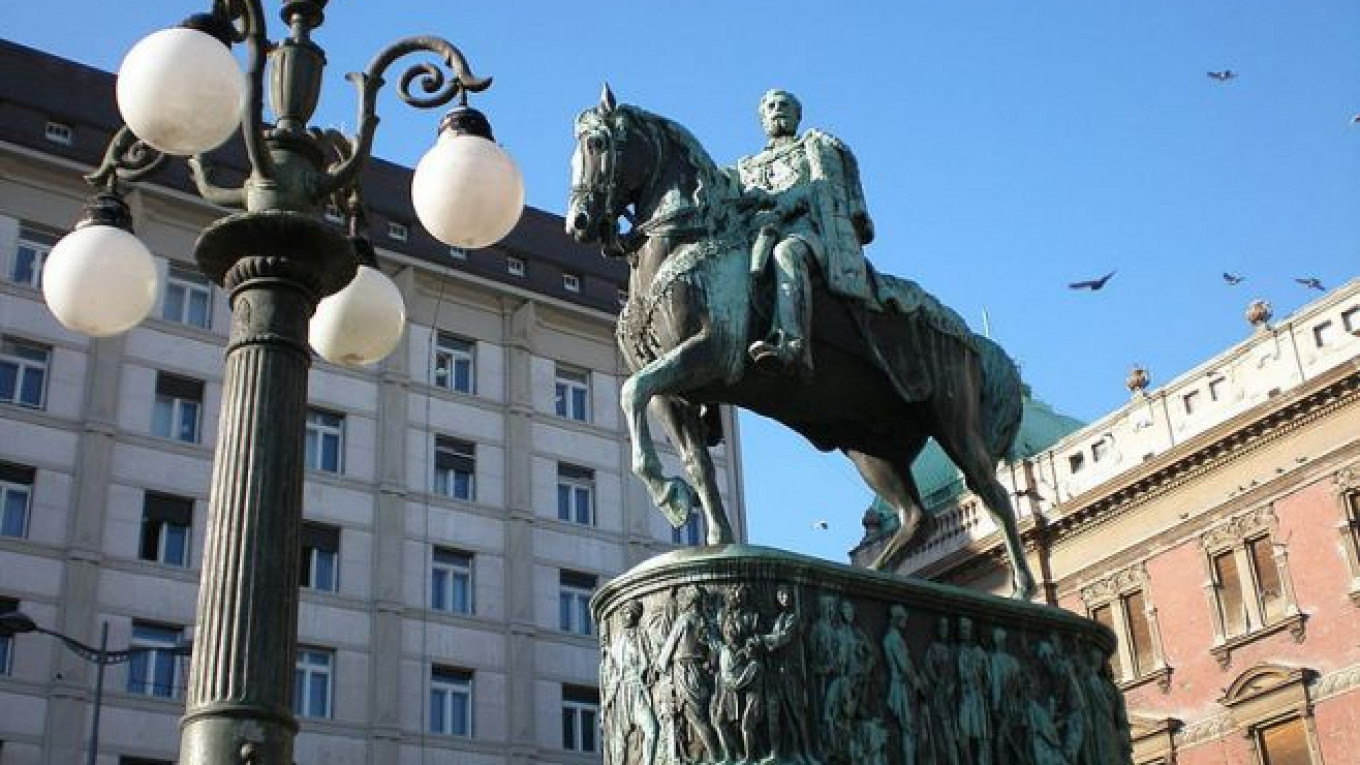BELGRADE — Serbia said on Friday it would not subsidize exports to Russia, after the European Union urged the Balkan country — a candidate for accession to the bloc — not to exploit the Kremlin's ban on Western food imports.
Serbian food producers hope to take advantage of the trade row but the West-Russia stand-off over Ukraine has put Serbian authorities in a tight spot, caught between their ambition to join the EU and economic and political ties with Russia.
Prime Minister Aleksandar Vucic said he had received an aide-memoire this week from an EU official in Belgrade calling on Serbia to refrain from boosting exports to Russia, as a matter of solidarity with the bloc.
Vucic told a news conference Serbia had not planned to subsidize exporters to Russia but also would not join the Western sanctions on Moscow.
As an EU candidate, Serbia is under pressure to bring its foreign policy into line with that of the 28-member bloc, which wants to make sure Russia feels the effects of the embargo.
"We won't stop production or exports, but we won't introduce new subsidies either," Vucic said. "We will behave in line with the recommendation we received, but we will not introduce sanctions against Russia."
"Our strategic path is the path to the EU, and because of Serbia and its citizens we must preserve good, friendly relations with Russia," Vucic told reporters.
Some Serbian producers, particularly fruit farmers, have reported a spike in demand from Russia, but capacity is limited.
In 2013, just 7.2 percent, or about $65 million of Serbia's total exports, went to Russia.
Russia this month banned all meat, fish, dairy, fruit and vegetable imports from the United States, the EU, Norway, Canada and Australia for one year in retaliation against Western sanctions on Moscow.
The West accuses the Kremlin of fomenting a pro-Russian separatist insurgency in Ukraine, a charge Moscow denies.
On Aug. 15, the EU said it expected candidate countries such as Serbia to "refrain from measures which are aimed at exploiting new trading opportunities arising from the introduction of these [Russian] measures".
The bloc welcomed Vucic's remarks on Friday.
"We welcome the attention the Serbian government pays to this issue and we appreciate the constructive approach as announced by the Prime Minister Vucic," EU Enlargement Commissioner Stefan Fule's spokesman, Peter Stano, said.
See also:
A Message from The Moscow Times:
Dear readers,
We are facing unprecedented challenges. Russia's Prosecutor General's Office has designated The Moscow Times as an "undesirable" organization, criminalizing our work and putting our staff at risk of prosecution. This follows our earlier unjust labeling as a "foreign agent."
These actions are direct attempts to silence independent journalism in Russia. The authorities claim our work "discredits the decisions of the Russian leadership." We see things differently: we strive to provide accurate, unbiased reporting on Russia.
We, the journalists of The Moscow Times, refuse to be silenced. But to continue our work, we need your help.
Your support, no matter how small, makes a world of difference. If you can, please support us monthly starting from just $2. It's quick to set up, and every contribution makes a significant impact.
By supporting The Moscow Times, you're defending open, independent journalism in the face of repression. Thank you for standing with us.
Remind me later.






